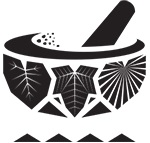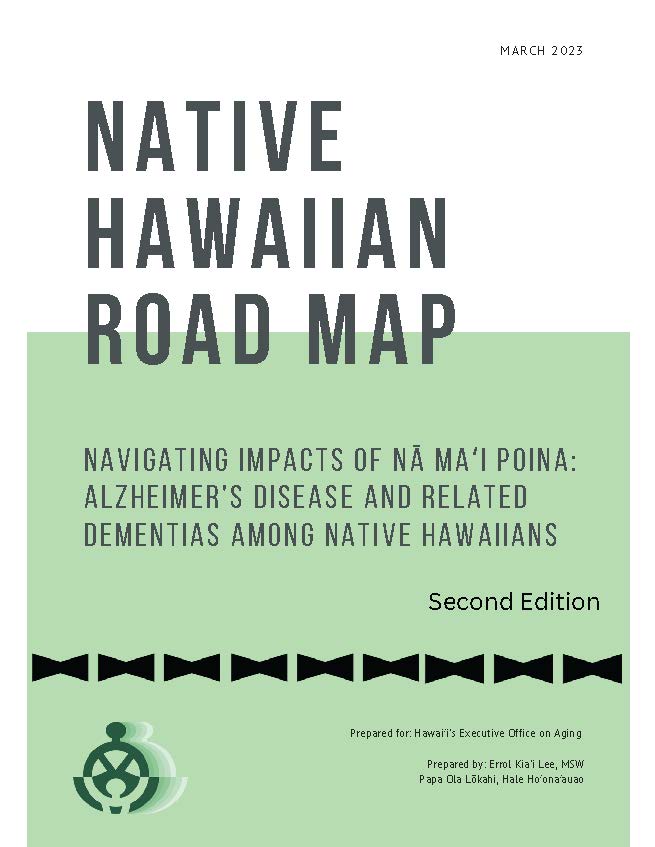Aligned with Papa Ola Lōkahi's commitment to improve the health and well-being of Native Hawaiians and our families, inquiry into the brain health of kūpuna—elders, grandparents, adults 65 and older—and Alzheimer’s Disease and Related Dementias (ADRD) has yielded insightful observations, a rich body of knowledge, and targeted recommendations to agencies that address the interests of elders in Hawai‘i. The welfare of our kūpuna impacts the well-being and resiliency of the entire family.
Throughout the project, we learned from the research and experiences of those who preceded us. We engaged with interested community members on all islands both in person and through teleconferences. We gauged people's knowledge about ADRD and gained understanding of how Hawaiian families are impacted. We are grateful to all our partners and collaborators, and especially to community members who generously shared their stories.
The Road Map, modeled after a 2019 Road Map for Indian Country, is supported by a grant from Hawai‘i State Executive Office on Aging (EOA). It is a living document that will evolve and grow as new information about ADRD, understandings about impacts to Hawaiians, and perceived needs are updated. It is groundbreaking in its discussion of the ways Hawaiians are impacted by dementia, relevant cultural perspectives, and its recommendations for a public health response.
The First Edition of the Road Map was submitted to the EOA in December 2022. More than 40 recommendations have been offered in the areas of data collection and reporting, programs and services, policy, community awareness and education, and workforce development. The top recommendations are:
- Increase early detection and diagnosis;
- Iterate that there is no cure for ADRD; equip and prepare families to live their best quality of life and allow loved ones to die with dignity;
- Promote holistic lifestyle changes, that may include healthy diet, stress reduction, increased physical activity, and maintaining healthy relationships;
- Develop a toolkit for Hawaiian families to cope with body, mind, spiritual, legal end-of-life preparations and that integrate Hawaiian values and perspectives of death;
- Improve caregiver support for family members, across generations, with information that focuses on a safe environment, finances/compensation, and self-care;
- Strengthen collaborations among stakeholders;
- Implement culturally sensitive and relevant research methods; and
- Increase Hawaiian-specific (disaggregated) data.
DOWNLOADS
Native Hawaiian Road Map, Second Edition
Island Reports - Each report highlights understandings of ADRD, personal experiences, community strengths, concerns and needs, and communities in practice.








